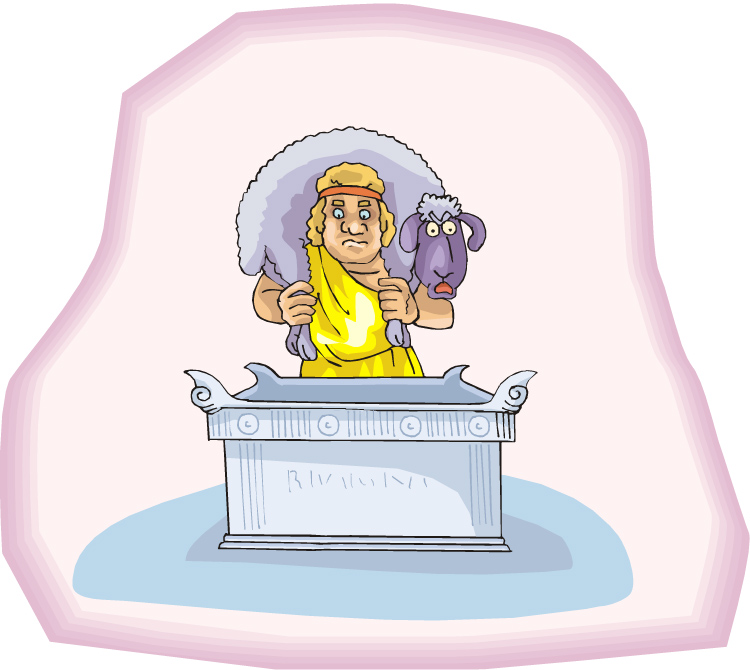
Acts 21:23–27, Vow. When Paul offered a sacrifice, is this proof that the sacrificial system is still in force today, even after the death of Yeshua the Messiah on the cross? Some people say yes despite what the writer of Hebrew’s lengthy discussion about how Yeshua’s death replaced the sacrificial and Levitical systems (Heb chapters 8–11; 10:10).
The rituals that Paul and his fellow Israelites did in Acts 21 actually fits the description of one who is coming out of a Nazirite vow (see Num 6:1–21). This was a sin offering and was the only way that the Torah allows one who has taken a Nazirite vow legally to terminate his vow to Elohim. A sacrifice was to be made at the door of the tabernacle (later the temple) by a priest.
Today, one can’t technically do a Nazarite vow, since there is no way legally to come out of it unless, of course, one stays a Nazirite until he dies. This is because there is no tabernacle or temple, and there is no Aaronic priest who is available to make the sacrifice. However, in Paul’s day, the priesthood still existed, and the temple still stood.
The sacrifice for coming out of a Nazarite vow is the only example of a disciple of Yeshua performing any sacrifice after Yeshua’s resurrection. Therefore, this sacrifice was a special exception for believers doing a sacrifice, else how could one legally come out of a Nazarite vow?
Why would Paul involve himself in a sin-sacrifice in Acts 21:24 after the death of Yeshua? We mustn’t read too much into the text. It is true that coming out of a Nazarite vow involved a sin offering. However, Acts doesn’t say that Paul was coming out of his own Nazarite vow. What the text says is that he was acting as a wealthy patron—an act of charity—for four individuals who, presumably were unable to afford the costs of paying for the necessary sacrifices to exit a Nazarite vow.
Admittedly, this is a perplexing passage. None of the Bible commentaries I examined on this text could give an adequate explanation as to why Paul would involve himself in this particular ceremony to prove to the Jerusalem mob that he was Torah-observant. The Acts text just doesn’t give us enough background information on the subject. One thing seems certain though. Paul was not making a sin offering for himself. His paying for the sacrifices of the Nazarites seems to have been a public relations gesture to appease those in the Jewish mob who were slandering him. It is a logical overreach and reading into the text to take Paul’s act of charity as him making a doctrinal statement favoring the continued validity of the sacrificial system after the death Yeshua, especially in light of what the other apostolic writers had to say about Yeshua’s fulfilling that system by his death. Certainly, the writer of Hebrews makes this point abundantly clear.
Acts 21:25, Observe no such thing. The phrase “that they should observe no such thing, except” is a dubious one and is not found in all the oldest and reliable Greek NT manuscripts. I suspect this is an example where the KJV got it wrong. My NKJV has a footnote attached to this phrase saying that it’s not found in the Alexandrian family of NT texts. Furthermore, it’s not in the Aramaic Peshitta. Therefore, I suspect that this phrase was a scribal addition and was not in the original autographs, especially since it is inconsistent with the rest of the Scriptures including the writings of Paul.


Shalom Natan & All
this is controversial area isn’t it & difficult for me to feel certain
I am just getting my head around that the millennium Temple exists in YHWH Word & that the shadows of Mikra we perform in our homes without aTemple as memorial will also be then.
I am still struggling with the alongsideness of ‘the shadow’ with the heavenly reality of the blood of Christ being in the heavenly Tabernacle and the existence of Two Priesthood lines.
Certainly one is passing away for the reality has come but is the fullness entirely received for that passing away to be completed?
I also get drawn to wait until the New Heaven & Earth appear having validity too.
The New Jerusalem doesn’t have a Temple…maybe only then the fullness is actually with us?
How to reconcile not one jot or tittle passing until then, especially when the prophets say even the sin slaughter will continue in Ezekiel’s future Temple has implications that resonate with me even as I don’t find that easy to fit my earlier thoughts about this matter.
Perhaps Concurrent Priesthood’s may just exist & we may have to accept it & one is shadow.
Perhaps the timing of soon to pass away is 2 millenia & Paul’s urgency of preaching the message had no revelation of how long the ‘soon’ return of Yeshua would be.
Take care & blessings to all.
Love in Messiah
FJ
Mattityahu 5:17-20?
Acts 21:27 says the seven days were not completed yet, so perhaps Paul had no intention of proceeding with the sacrificial part. Acts 18 also shows Paul cutting his hair because of a vow but does not say he sacrificed anything.